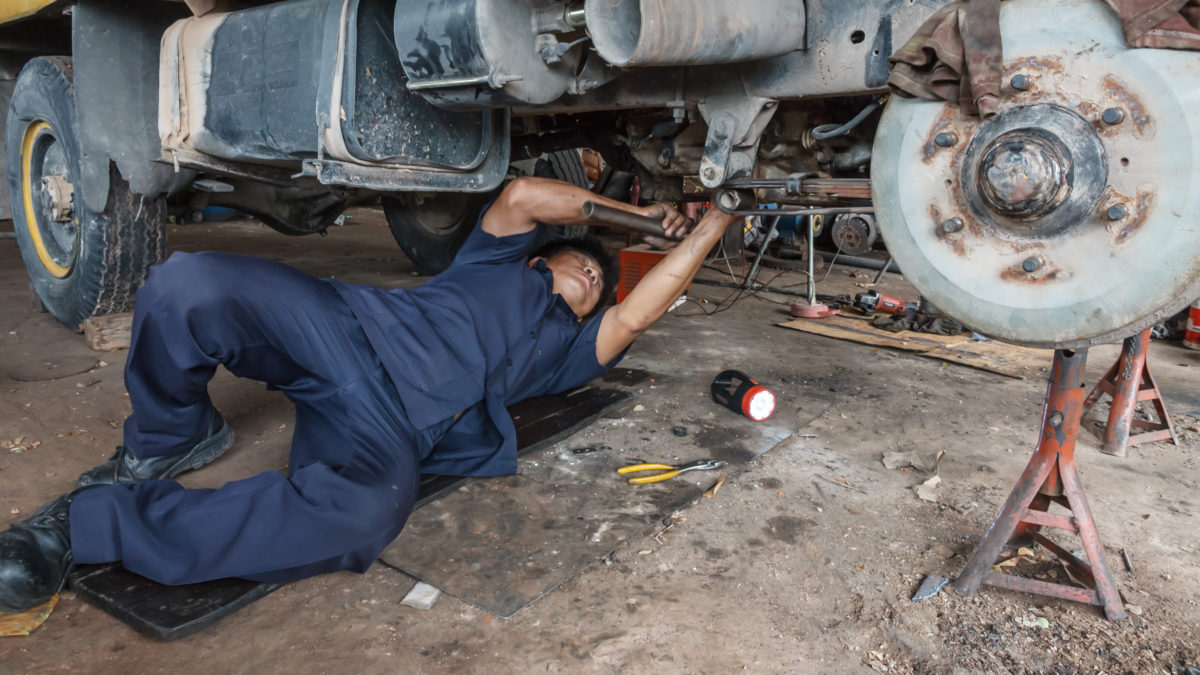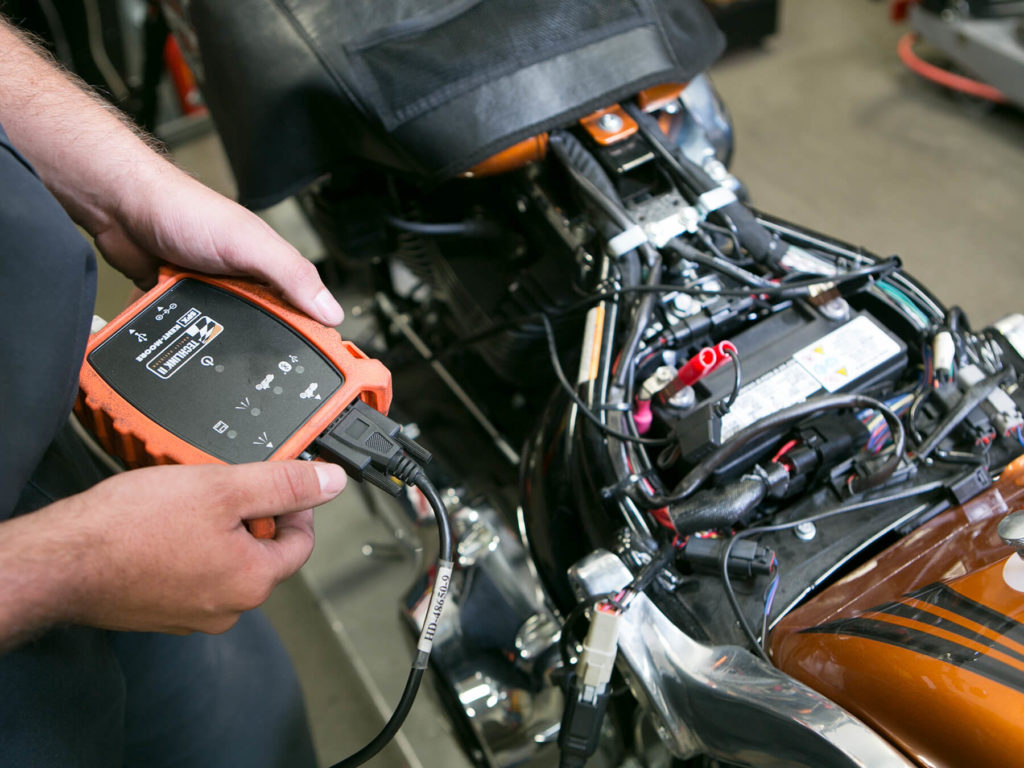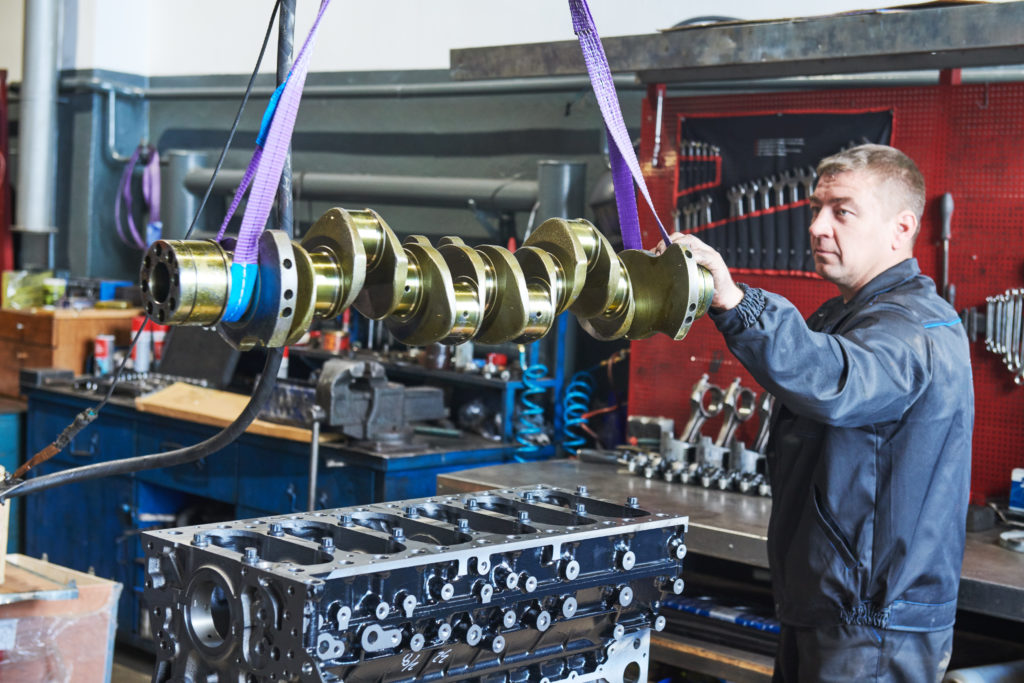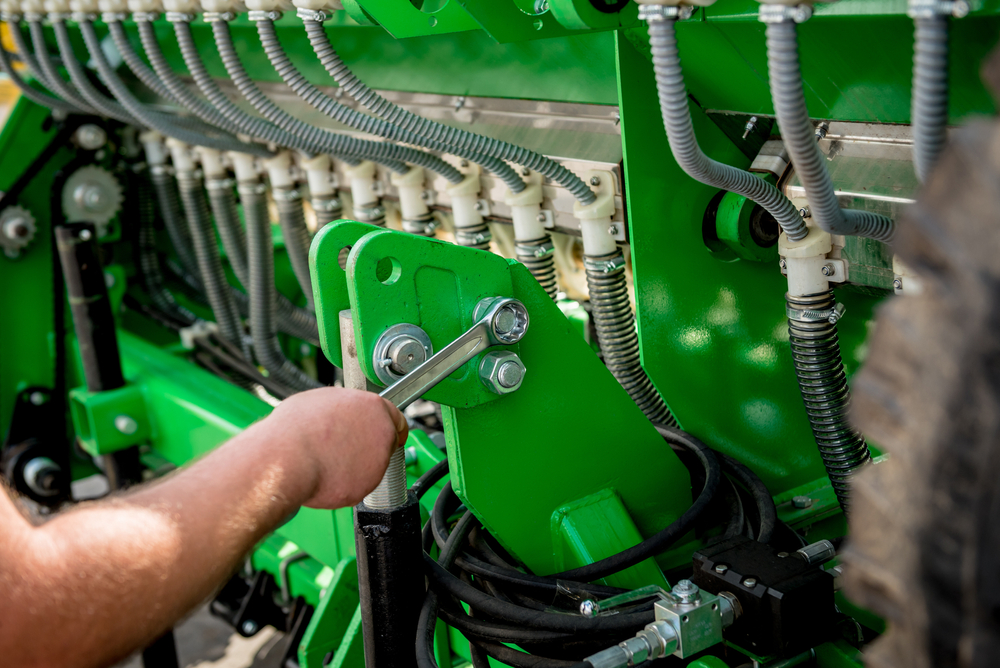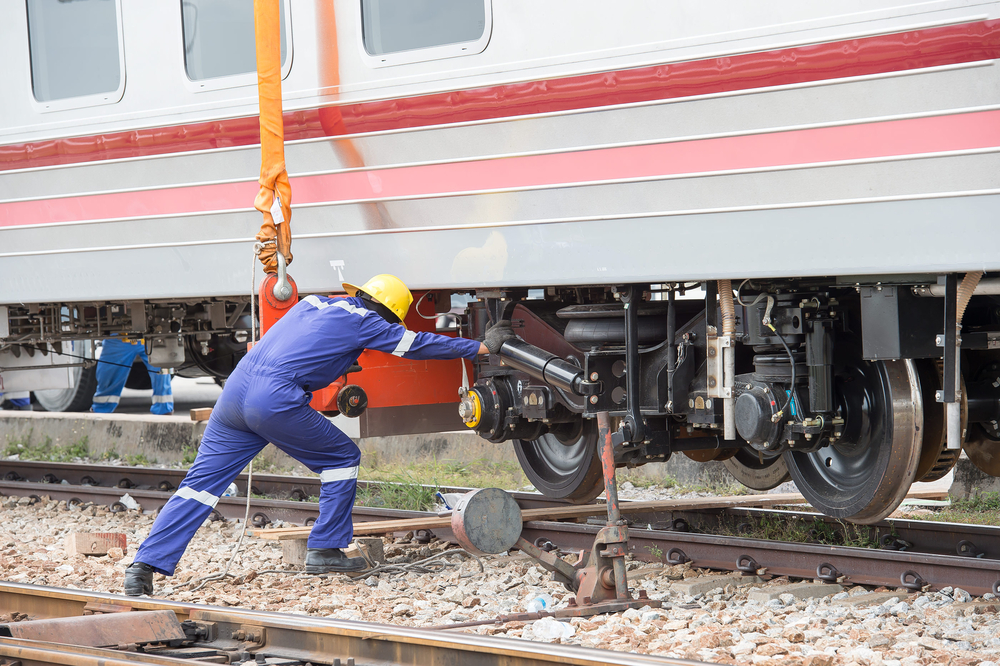Jobs for Diesel Technicians: Thinking Outside the Box
Jobs for Diesel Technicians: Thinking Outside the Box
Skilled diesel mechanics are critical for a variety of industries beyond transportation
When you think about diesel technicians or diesel mechanics, the first thing that you likely imagine is someone with grease up to their elbows working on a big rig. And while diesel mechanics for the transportation industry’s large trucks are still important, of course, the truth is that diesel technology is critical to a wide range of machines and industries. For the students who have a mechanical inclination, who are interested in hands-on work, or who are seeking the type of career that’s increasingly considered “essential” in our economy, diesel tech could be the right fit.
Diesel technology students have an opportunity to get familiar with industry standards, cutting-edge technology, and tried-and-true best practices—and how to leverage all that they learn into a successful career.
Generators: critical power
As we have learned this year with the COVID-19 crisis and global pandemic, hospitals must be ready for anything. And that includes being able to handle power outages, buildings that are at maximum capacity, system failures, weather issues, and more. How do hospitals and other healthcare facilities ensure that their patients, their families, and their staff are never put at added risk because of a power glitch or failure? Diesel generators! And that power depends on diesel technicians who are trained to install, maintain, and repair generators and diesel power supply systems.
Plenty of other essential and large capacity structures also rely on the power that diesel technology provides—or on the emergency power supply that generators provide—to keep their services going no matter what else happens. Schools, government centers, public safety facilities, and other essential spaces can all fall into that category.
Locomotives: training for trains
You’re well aware that diesel fuels transportation, and that goes for locomotives as well as trucks. Trains help transport people across town and across the country—and diesel engines make it all happen with greater efficiency and reliability than many automobiles, and with lower operations costs than steam locomotives. But trains are also good for more than just riding the rail! Locomotives are used to ship goods and supplies nationwide every single day, making them a critical part of supply chains and a wide range of industries across America.
Diesel locomotives are particularly important for reaching rural or far-flung areas that are more difficult to access by car, as well as for delivering heavy equipment, large shipments, volatile or sensitive materials, or even livestock. Diesel trains make it possible to transport without worrying about highway traffic, air traffic, or weight limits.
Agriculture: equipment on the farm
Diesel technology is also an important power source for farming equipment and vehicles—and for the processing and packaging of food. It’s hard to overstate the importance of the agricultural industry, and that industry relies on diesel technology. Getting food on the table depends on diesel technology, with growing, harvesting, processing, and packaging systems all often needing on diesel power.
If you’re passionate about supporting farmers and the country’s broader food industry, becoming a technician who works on diesel farm equipment could be a way to help ensure that tractors, irrigation systems, combines, and trucks continue to run smoothly. The field relies on mechanics and technicians who are trained to install, maintain, and repair diesel farm equipment, including those who work for equipment manufacturers and repairers, for major agricultural corporations, or even with individual farmers.
Engines: luxury vehicles
When you’re out on the open road, you may think it’s only the 18-wheelers and other large trucks that are relying on diesel power. But the truth is that many luxury cars also have diesel engines under the hood. And if you’ve always wanted to work on luxury cars like BMWs, Jaguars, or Land Rovers, having diesel technology training could help you get the job of your dreams.
Why are diesel cars preferred by many auto aficionados and professional drivers? It starts with greater fuel economy, greater durability, and greater torque. And, of course, you can’t beat that sound. They’re rugged, dependable, and typically longer lasting than conventional gasoline engines. Diesel cars are also known for their higher resale value, meaning that their long-term maintenance is of particular importance.
Fleets: meeting the demand
Many commercial, military, and manufacturing organizations and companies depend on entire diesel fleets to keep their organizations running, and all those engines need trained technicians who can keep them running efficiently. It’s one thing to keep a single large truck running reliably, but what about when you have multiple trucks crisscrossing the country on a daily basis? Fleet mechanics are responsible for performing regular maintenance (and repair work as needed) to keep a large number of vehicles on the road.
Not only do many industries rely on these trucks to keep up with manufacturing and shipping demands, but arguably the American economy itself depends on fleets ranging in size from a couple of coordinated trucks to hundreds of diesel vehicles. And don’t forget the fleets of school buses, public service vehicles, or cab companies that also run on diesel!
Training for diesel
Do you think you have what it takes to build, maintain, and repair diesel systems?
Diesel technology may become a pretty popular career choice, because diesel is a growing industry: The Bureau of Labor Statistics (BLS) expects jobs will grow about 5 percent between 2018 and 2028, adding almost 14,000 jobs nationwide during that period. Diesel technicians and mechanics, in a variety of roles and industries, can also expect to earn an above-average salary: They earned annual median pay of $48,500—or hourly wages of more than $23 per hour—in 2019, according to BLS data.
If you think this could be a good fit for you and you’re interested in pursuing a job path in any one of these industries, a diesel technology program could help you prepare! The Imagine America Foundation partners with schools that provide the education and hands-on skills training students need to succeed in a diesel career nationwide. Visit www.imagine-america.org/our-schools to find the right program to begin your journey!
More From Our Sponsor: Universal Technical Institute
Motorcycle Mechanic Careers with Motorcycle Mechanics Institute
The Future of Motorcycle Mechanic Careers with Motorcycle Mechanics Institute Meet Motorcycle Mechanics Institute As one of the leading providers of professional training for skilled motorcycle technicians, Motorcycle Mechanics Institute (MMI) offers one of the largest motorcycle training group of schools in the nation. Motorcycle…
Leave a Reply Cancel reply
- - ADVERTISEMENT - -
Categories
- Alumni Series (13)
- Automotive (57)
- Aviation (15)
- Business (14)
- Business & Arts (18)
- Career College Expositions (8)
- Career Development (96)
- CCC Blog (1)
- CCC Podcast (9)
- College Resource (90)
- College Showcase – Lincoln Tech (6)
- College Showcase – New Jersey (8)
- College Showcase – Pennco Tech (1)
- College Showcase – Universal Technical Institute (2)
- Continuing Education (155)
- Cosmetology (3)
- Counselor Resources (108)
- Criminal Justice (3)
- Dental Assistant (2)
- Education (110)
- Financial Literacy (17)
- Health Sciences (51)
- Heritage Series (3)
- High School Recruitment Series (4)
- Housing Series (10)
- HVAC (8)
- Imagine America Scholarships (12)
- Information Technology (17)
- Massage Therapy (5)
- Mechanical Sciences (109)
- Medical Assistant (12)
- Millennial Student Series (4)
- News (11)
- Nursing (22)
- Online education (13)
- Pandemic Proof Series (4)
- Personal Finance (17)
- Podcast (91)
- Research (11)
- Road Map Series (2)
- Scholarships (12)
- Social Media Series (4)
- Strata Tech (3)
- Student Success (29)
- Study Tips (3)
- Time Managment (1)
- Top 10 (10)
- Trucking (2)
- Uncategorized (14)
- Universal Technical Institute (19)
- Veteran Affairs (8)
- Welding (24)
- Women in Skilled Trades (3)
Tags
- - ADVERTISEMENT - -

